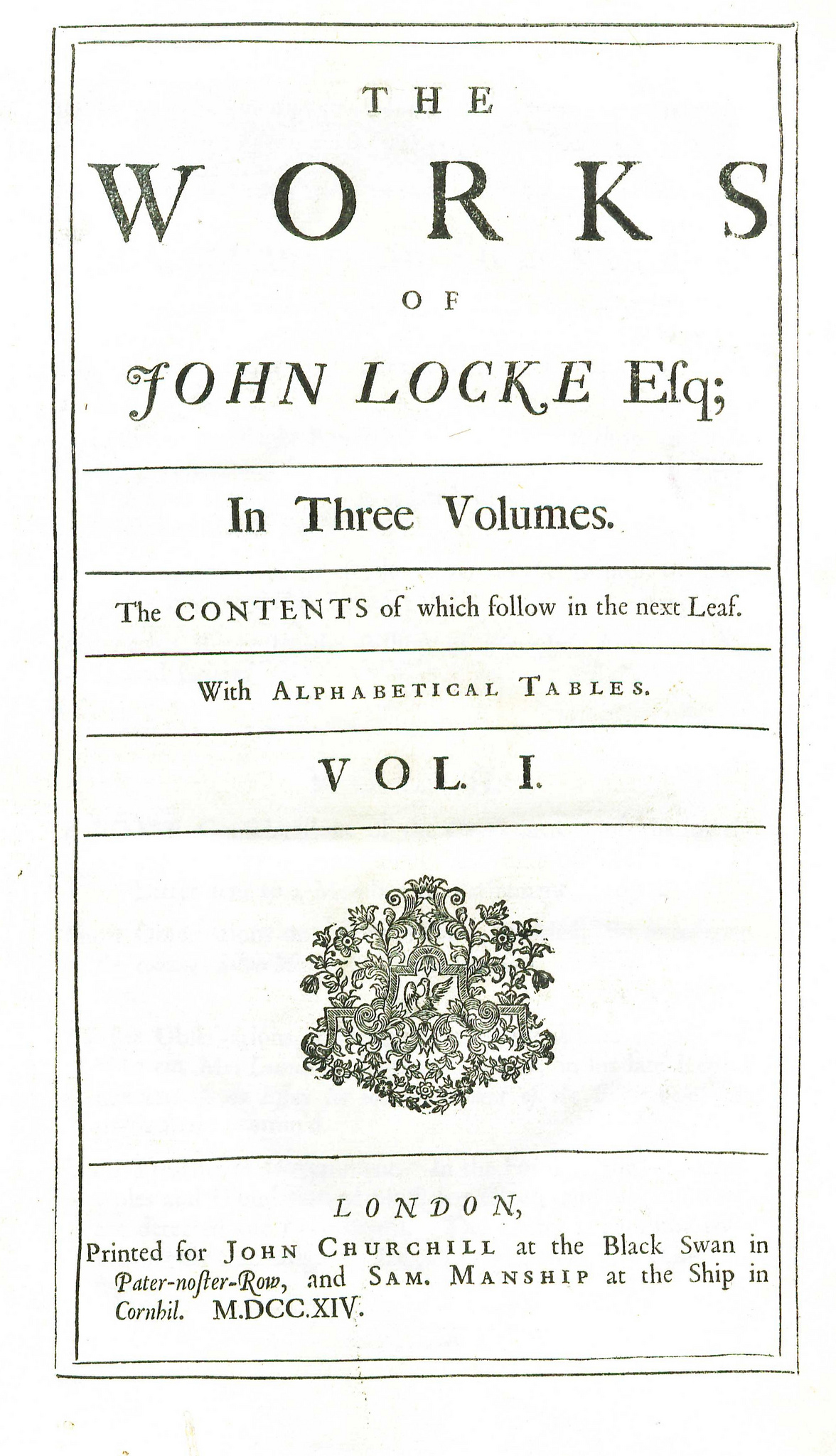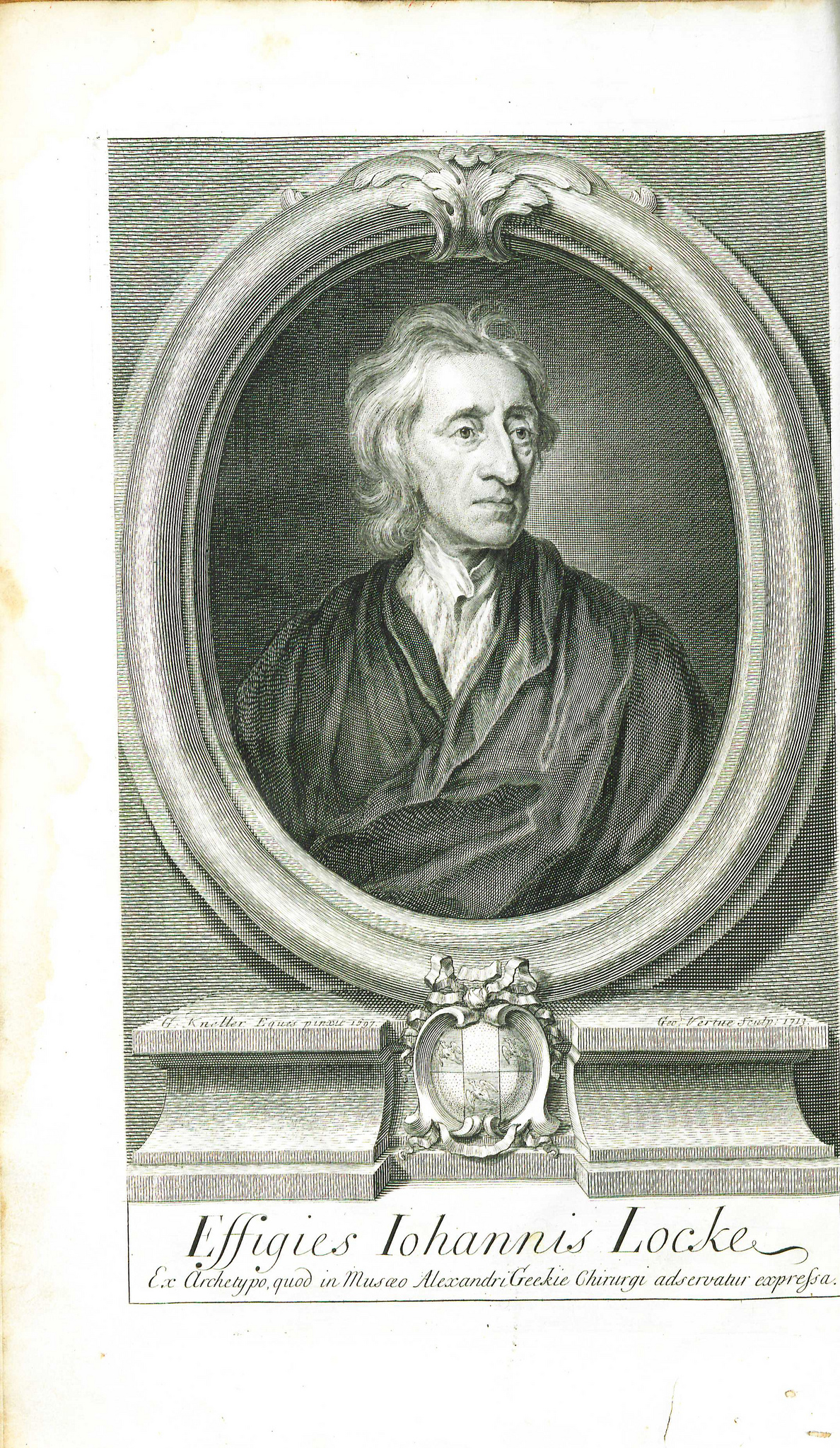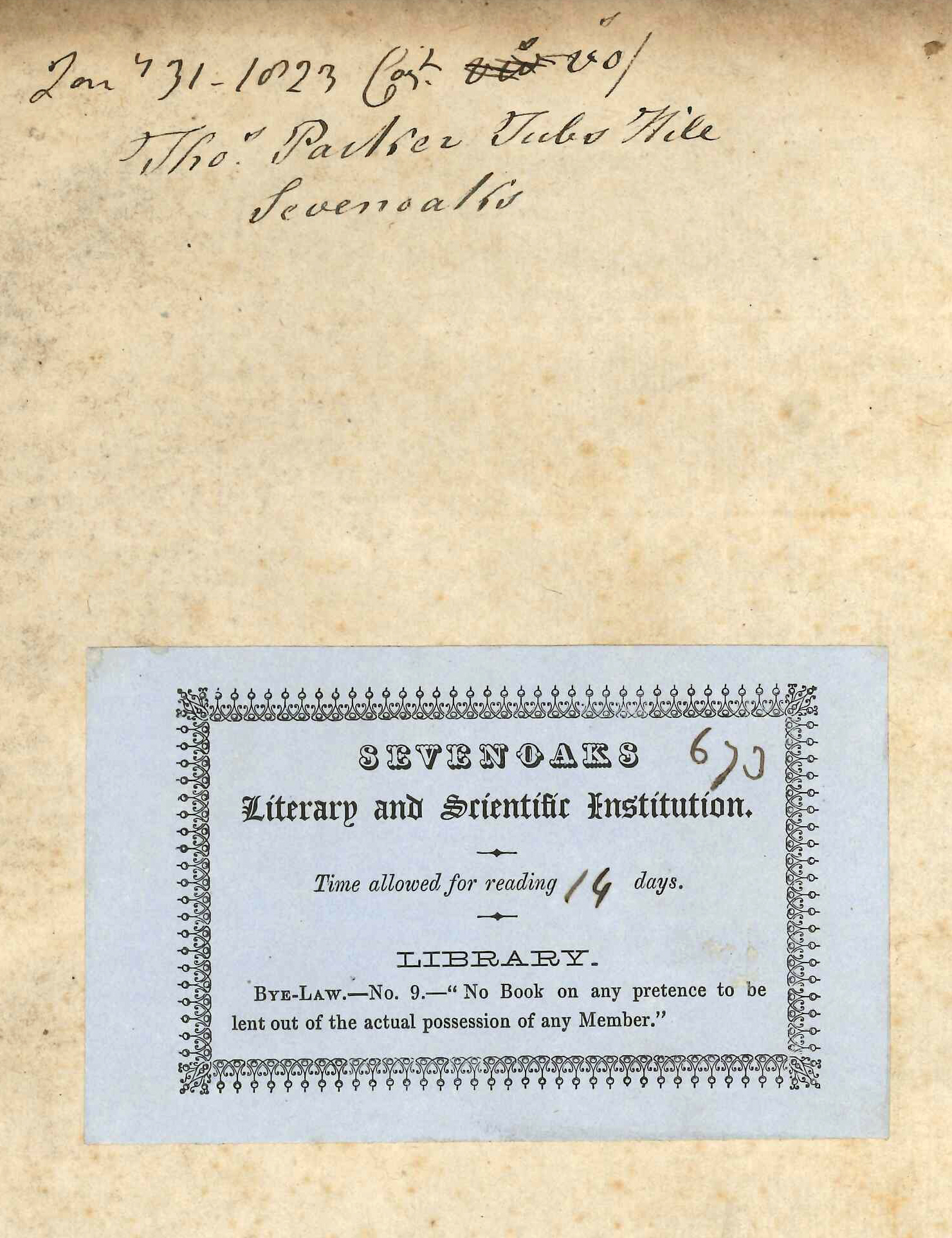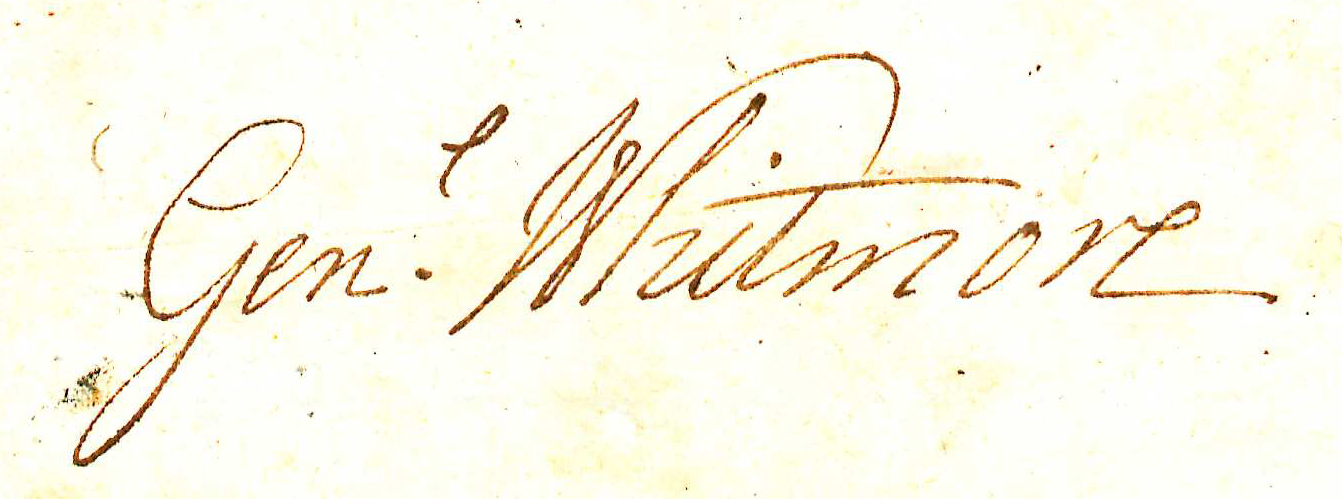The Works of John Locke Esq.
by John Locke
| The Works of John Locke Esq. | |
|
Title page from The Works of John Locke Esq., volume one, George Wythe Collection, Wolf Law Library, College of William & Mary. | |
| Author | John Locke |
| Published | London: Printed for John Churchill at the Black Swan in Pater-noster-Row, and Sam. Manship at the Ship in Cornhil. |
| Date | 1714 |
| Edition | First edition |
| Language | English |
| Volumes | 3 volume set |
| Desc. | Folio (32 cm.) |
| Location | Shelf A-5 |
John Locke (1632 – 1704) was an English philosopher born into low English gentry. He attended the Westminster School with other luminaries of his time, including Christopher Wren, John Dryden, and Robert Hooke.[1] Locke followed this with a studentship (a fellowship of sorts) at Christ Church, Oxford, obtaining a BA in 1656 and an MA in 1568. His studies continued until 1675 when he obtained a medical degree. Locke seems to have investigated law (he was admitted to Gray's Inn in 1656) and the church as potential careers, but turned instead to the study and practice of medicine and natural philosophy.[2]
Locke is best known, however, as "an epistemologist and political philosopher. One of the most crucial aspects of Locke's thought was his challenge to traditional political and religious authority." Locke's political ideas, with their "emphasis upon consent and toleration ... provide[] the model for modern democracy and, it has been argued, even suppl[y] the blueprint for the American Constitution."[3] His philosophy was “immensely influential in the eighteenth century, not least in the universities of Oxford and Cambridge, where it soon replaced the scholastic doctrines in which Locke had been educated.”[4] Locke's ideas about the purpose and limits of government continue to exert enormous influence on political thought, and "his conclusions were so powerful as to become entwined in the warp and weft of western thinking."[5]
Locke’s works were first published as a collection in 1714, and were regularly reprinted until 1824. The set includes An Essay Concerning Human Understanding and its defenses against Stillingfleet, the papers on money, and Several Thoughts Concerning Education. "In addition, [it] also included several works which Locke had only acknowledged in his will and which therefore appeared for the first time under his name—Two Treatises of Government, the letters on toleration, The Reasonableness of Christianity and its vindications. Finally there were the posthumous pieces—Paraphrase and Notes on the Epistles of St. Paul, Posthumous works and Some familiar letters."[6]
Evidence for Inclusion in Wythe's Library
Listed on the Jefferson Inventory as "Locke’s works. 3.v. fol." and given by Thomas Jefferson to his son-in-law Thomas Mann Randolph. Later appears on Randolph's 1832 estate inventory as "'Locke's Works' (2 vols., $10.00 value)." We cannot determine the precise edition Wythe owned from the information available. Three-volume folio editions were published in 1714, 1722, 1727, 1740, 1751, and 1759. Brown's Bibliography[7] lists the fifth (1751) edition based on the copy Jefferson sold to the Library of Congress[8] George Wythe's Library[9] on LibraryThing includes no specific edition. Preferring the first edition when the precise edition of Wythe's copy is unknown, the Wolf Law Library purchase a copy of the 1714 edition.
Description of the Wolf Law Library's copy
Bound in the original panelled calf with rules and ornaments; rebacked in period style with raised panels and gilt lettering. Volumes one and two have the signature of an early owner, Thos. Parker Tubs Nile. and the bookplate of Sevenoaks Literary and Scientific Institution, an eighteenth century literary society, on the front pastedown. Volume three has owner's name, Genl. Whitmore, on the front free endpaper. Purchased from the George S. MacManus Company.
Images of the library's copy of this book are available on Flickr. View the record for this book in William & Mary's online catalog.
Full text
See also
References
- ↑ J. R. Milton, "Locke, John (1632–1704)" in Oxford Dictionary of National Biography (Oxford University Press, 2004- ), accessed 4 Oct 2013.
- ↑ Ibid.
- ↑ Great Thinkers A-Z, s.v. "John Locke", accessed Oct. 9, 2013, http://www.credoreference.com/entry/contgt/john_locke.
- ↑ Milton, "Locke, John."
- ↑ Great Thinkers A-Z, s.v. "John Locke"
- ↑ John C. Attig, The Works of John Locke: a Comprehensive Bibliography from the Seventeenth Century to the Present (Westport, Conn.: Greenwood Press, 1985), 137.
- ↑ Bennie Brown, "The Library of George Wythe of Williamsburg and Richmond," (unpublished manuscript, May, 2012) Microsoft Word file. Earlier edition available at: https://digitalarchive.wm.edu/handle/10288/13433
- ↑ E. Millicent Sowerby, Catalogue of the Library of Thomas Jefferson, (Washington, D.C.: The Library of Congress, 1952-1959), 5:168-169 [no.4918].
- ↑ LibraryThing, s. v. "George Wythe," accessed on June 28, 2013.
External Links
- Read volume one of this book in Google Books.
- Read volume two of this book in Google Books.
- Read volume three of this book in Google Books.



